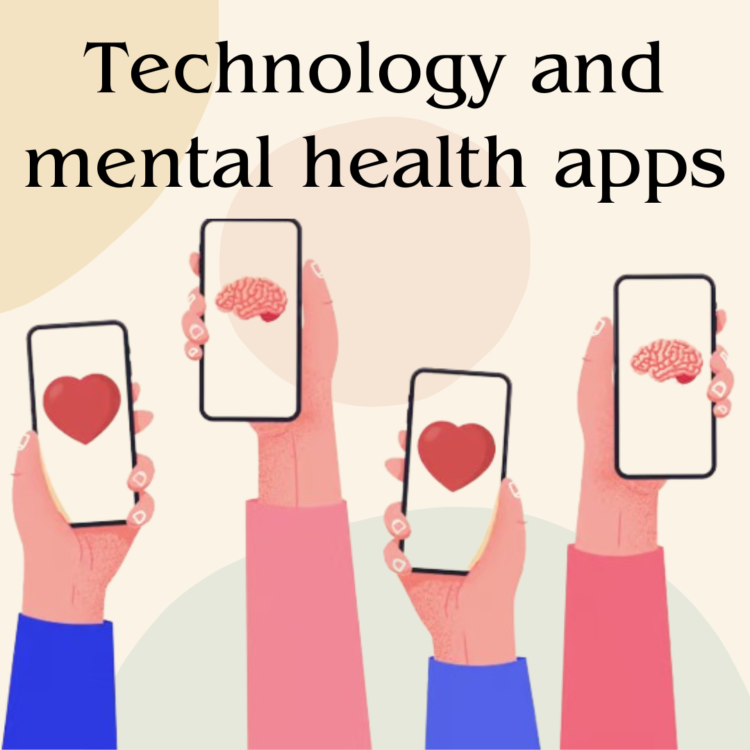In today’s fast-paced and digitally driven world, technology is not just about convenience and efficiency; it has also become a potent ally in the realm of mental health. With the rise of mental health awareness, developers and healthcare professionals have collaborated to create a plethora of innovative mental health apps designed to support individuals on their journey to emotional well-being. This blog explores the intersection of technology and mental health apps, highlighting their transformative impact on our mental and emotional well-being.
The Rise of Mental Health Apps:
The advent of smartphones and the ubiquity of internet connectivity have paved the way for a revolution in mental health care. Mental health apps, ranging from meditation and mindfulness apps to mood tracking and therapy platforms, offer accessible and personalized solutions to individuals seeking support. These apps are designed to be user-friendly, making mental health resources more approachable and reducing the stigma often associated with seeking help.
1. Mindfulness and Meditation Apps:
Mindfulness and meditation apps, such as Headspace and Calm, have gained immense popularity. These apps provide guided meditation sessions, breathing exercises, and calming music to help users manage stress, anxiety, and improve overall mental well-being. The bite-sized nature of these sessions allows users to incorporate mindfulness into their daily routine seamlessly.
2. Mood Tracking Apps:
Mood tracking apps like Daylio and Moodpath enable users to monitor their emotional well-being over time. By recording daily moods, activities, and thoughts, users can identify patterns and gain insights into their mental health. These apps empower individuals to take proactive steps to manage their emotional states and seek professional help when needed.
3. Therapy and Counseling Apps:
Virtual therapy platforms like BetterHelp and Talkspace connect users with licensed therapists through video calls, phone calls, or messaging. These apps break down geographical barriers, making mental health support accessible to a wider audience. They provide a convenient and flexible alternative to traditional in-person therapy sessions.
4. Crisis Intervention Apps:
Apps like Crisis Text Line offer immediate support for individuals in crisis. By connecting users with trained crisis counselors through text messaging, these apps provide a lifeline for those who may be hesitant to reach out for help verbally. The anonymity and accessibility of crisis intervention apps can be crucial in critical situations.
Benefits of Mental Health Apps:
Accessibility:
Mental health apps make support readily available to users, irrespective of their location or schedule. This accessibility is particularly valuable for those in remote areas or with busy lifestyles.
Personalization:
Many mental health apps use artificial intelligence and machine learning to tailor their content to individual needs. This personalization enhances the effectiveness of interventions, providing targeted support based on the user’s preferences and progress.
Cost-Effective:
Compared to traditional therapy, mental health apps often offer cost-effective solutions. Some apps provide free content, while others offer subscription-based models that are still more affordable than regular therapy sessions.
Reducing Stigma:
The discreet nature of mental health apps allows users to seek support without fear of judgment. This contributes to destigmatizing mental health issues and encourages more people to prioritize their emotional well-being.
Challenges and Considerations:
While mental health apps offer numerous benefits, it’s essential to acknowledge potential challenges. These may include concerns about data privacy, the need for rigorous scientific validation of app efficacy, and the importance of these apps complementing rather than replacing traditional mental health care.
Conclusion:
Technology and mental health apps have forged a powerful alliance, revolutionizing the way individuals approach and manage their emotional well-being. As we navigate the complexities of modern life, these apps serve as valuable tools, offering support, guidance, and empowerment. By leveraging the potential of technology, we can foster a culture that prioritizes mental health and embraces the diverse avenues available for cultivating a more balanced and resilient mind.










No Comments
Leave Comment